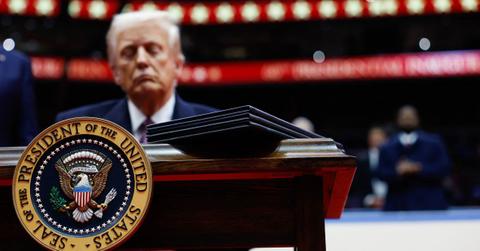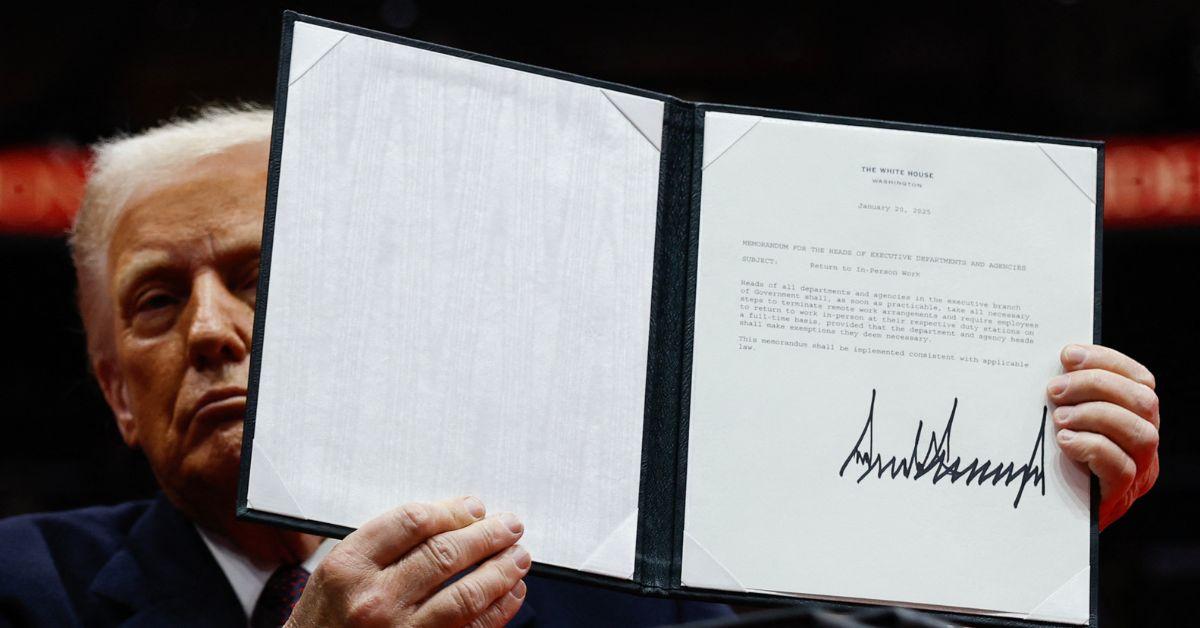A Trump Executive Order Claims to End Birthright Citizenship, but What Does That Mean?
Birthright citizenship has existed for more than 100 years in the U.S., and Trump wants to end it.
Published Jan. 21 2025, 11:22 a.m. ET

Amid a flurry of executive orders that Donald Trump signed shortly after becoming president again, one of the most significant was his order claiming an end to birthright citizenship. While there was plenty of outrage about this order among scholars of the Constitution, there were also plenty of people who were just confused by what it all meant.
Birthright citizenship is embedded in the 14th Amendment to the Constitution, and signing an executive order probably won't be enough to get rid of it. Here's what we know about what it is, and why Trump is trying to make it not a thing.

What does it mean to end birthright citizenship?
Birthright citizenship is a pretty simple idea. It means that, regardless of who your parents are, if you're born in the United States, you're automatically a U.S. citizen. This right was established after the Civil War as a way to ensure that Black people who were the children of enslaved people became citizens the second they were born.
This means that, today, if a person who is in the United States illegally has a child, that child is a U.S. citizen, even if their parent is not.
The first line of the 14th Amendment makes it clear: “All persons born or naturalized in the United States, and subject to the jurisdiction thereof, are citizens of the United States and of the State wherein they reside.”
This phrase is at the core of the American birthright citizenship, and it's complemented by several other laws and clauses that make it even more plain.
Ending birthright citizenship would mean that a new standard would have to be created to determine who was a U.S. citizen and who was not. The move is designed to ensure that people coming to this country illegally cannot have children who are U.S. citizens, but Trump's executive order definitely isn't enough to get rid of one of the Constitution's core principles.
Trump might be playing a longer game on birthright citizenship.
Trump's executive order might claim that it is ending birthright citizenship, but an executive order is not enough to override the plain text of the 14th Amendment, which has been part of the Constitution for more than 150 years.
Instead, Trump's goal with this executive order might be to provoke a legal challenge that would wind up before the Supreme Court.
Once the challenge is at the Court, Trump would hope that its conservative members, which represent a majority, would find in his favor, reinterpreting the 14th Amendment in a way that makes it clear that Trump is not in violation of it.
We don't know for sure whether the Court would rule in a way that aligns with Trump's desires, but it certainly seems like a possibility. The end of birthright citizenship would be a sweeping change for a country that has lived under that law for more than a century, though, and it might be a bridge too far even for this Court.